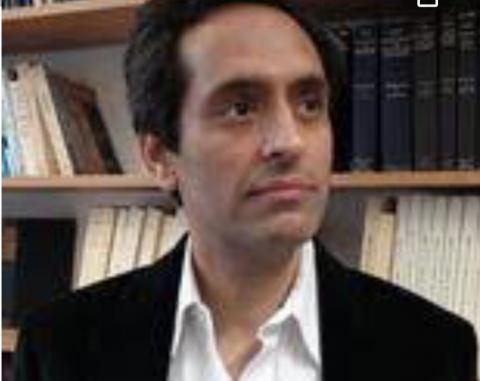Enrichment Lecture-Tragedy & the Tragic by Prof. Phiroze Vasunia

Enrichment Lecture Report
The English Department of the IIS (Deemed to be) University organized a Virtual Enrichment Lecture on “Tragedy and the Tragic” addressed by Professor Phiroze Vasunia, University College London on October 15, 2020 which was met with an enthusiastic reception.Dr. Rimika Singhvi, Head of the Department of English, delivered a warm welcome.
Prof. Vasunia began the lecture by discussing the etymology of “Tragedy,”highlighting the semantic range of the term which adds toits vagueness indefinition, emphasizing that limiting it to Greek Athenian tragedy is a Hellenocentric point of view and that“Tragic” is the ethos and the aesthetic which the playwrights intend to evoke through the genre.
He referred to two Ancient Theorists of Tragedy- Plato and Aristotle. Prof. Vasunia mentioned that the former not only disliked tragedybut also attacked Homer and other tragic playwrights as he considered it to be a “mimesis of truth” which can persuadethe audience to act in an unethical manner. He mentioned Aristotle’s “Poetics”in which he asserts that Tragedy is not dangerous and should rather be described, categorized and analysed in stark contrast to his teacher, Plato’s opinion. In addition, he included “pity” (eleos) and “fear” (phobos) in his definition.
Citing “Oedipus Rex” as one of the best tragedies, Prof. Vasunia elaborated that a successful Tragedy depends on plot and language which should produce catharsis in the audience, but this pleasure needs to be “proper to Tragedy”, therefore, demarcating a place for pity, fear as well as pleasure. He added that some critics opine that a Sado-masochistic streak can be seen in Aristotle’s insistence on pleasure, which, in his opinion, was not Aristotle’s actual intention.
He referred to Judith Butler’s tour de force of scholarship- “Breaks in the Bond: Reflections on Kinship Trouble.” It discusses what we mean by “kinship”, how we form/break kinship bonds and how we can see these bonds and roles played out in Greek tragedy. Prof. Vasunia focused the discussion on two Greek tragedies—Euripides' "The Bacchae" and Sophocles' "Oedipus the King."He, then, pointed out the importance of ‘Family Dynamics’ which is replete with intra-familial violence to drive home the point that Greek tragediesexplore the breakdown of kinship relations efficiently and powerfully.
The lecture was followed by an interactive Q/A session.The discussion revolved around Joseph Campbell’s “The Hero with a Thousand Faces,” recommending a few tragic novels including Hilary Mantel’s and understanding why employment of familial bonds increases the tragic import of a play. Dr. Rimika Singhvi gave the vote of thanks. The session was truly wholesome and comprehensive.

